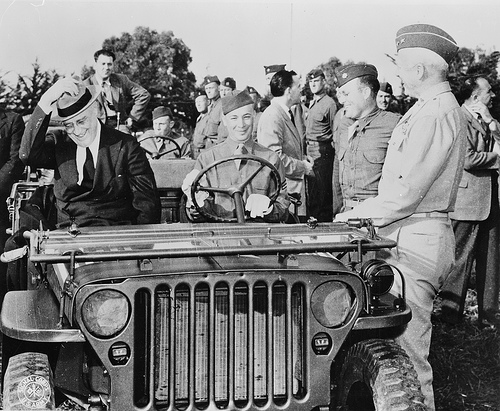by: Chris Warren
The validity of statements made in the past can and should be measured by how well they hold up against the test of the future. Unless and until the big guesses evolve into tangible reality, gun control is at the same level as overdramatic hucksters on late night infomercials telling us they have the secret to all our heart’s desires.
The apparent death of the Second Amendment as we know it and the subsequent rise of the gun control movement over the vanquished National Rifle Association was glowingly foretold by liberals since well before 2008 when Barack Obama won the Presidential election. In his first term he bailed on his promise to come down on the “bitter clingers,” but that was not enough of a buzzkill to keep his patsies from reelecting him.
My rearview mirror wisdom now confirms what I presumed in the first place: The gun control movement is indeed a collection of overdramatic hucksters, with Barack Obama and Michael Bloomberg getting top billing. Note: I refuse to use the term gun control in the context it is employed by the political left because those claiming to want “common sense gun laws” are either liars or fools (see also, useful idiot). Their newest hero, Hillary Clinton, claims that she does not want to abolish the Second Amendment. Technically, this is true. She has never openly made any such statement. But we all know her end game: The complete and total abolition of all private civilian firearm ownership. Of course she’s not going to admit it blatantly. Yet everyone, including her hired buffoons, know that if given the opportunity, that’s exactly what she would do. I will not take the bait and be a party to their overt bullshit, even if it is rhetorical hair splitting.
The “gun lobby” is not as much a lobby as it is a genuine, people-centric movement. The NRA has around five million members, each paying (give or take) about thirty-five bucks a year. Many if not most of those members donate over and above the yearly dues and are also members of other pro-gun organizations. Then factor in sales of NRA-branded clothes and gear, raffles, cash donations collected at gun shows, and yes, the occasional corporate sponsorship. But there is more to it than just a big pile of money. Gun enthusiasts are active participants every single day. They know it’s not enough to “like” a Facebook meme or slap a sticker on the back of their car or write a $35 check once a year.
“The left are accomplished experts at getting people to sign an online petition or answer a poll question, but their ‘point and click’ activism is miles wide and a millimeter deep.”
Most of the time, being engaged is not very exciting. It’s a daily grind of staying informed and reacting when needed. As one NRA member put it, “Thanks for emailing your U.S. Senator, but you have to also write a letter or send a hand written postcard. No one ever tripped on a bag of email.” Even buying a gun or a box of ammo is a statement.
A common taking point dragged around by the gun control hopefuls is that firearms ownership is on the decline; the recent dazzling increase in gun sales is due to the same core group of “gun nuts” panic buying multiple firearms. The theory only works if you ignore the thousands of new gun carry permits issued every year and that very few gun owners will respond to a survey by admitting they own guns. I know I would not. And I personally know dozens of gun owners who would not.
Even my own family does not know exactly how many and what type of guns I have. Liberals in general and Obama/Hillary in particular are in a tizzy because their claim that fewer and fewer Americans want to keep guns cannot be validated against gun sales, carry permit figures, and registration in training classes, all of which are easily quantifiable facts. Gun owners are sophisticated enough to know that any data collected on firearms ownership will ultimately be used to support gun control. As a result, Second Amendment supporters’ default setting is to be recalcitrant towards the media and the pollsters who work for them. To put it more simply, many if not most gun owners deliberately lie on polls and surveys.
Pro-gun citizens have the advantage of a common thing (guns) that serves as a base for organizing. They gather at gun shops, ranges, gun shows and shooting competitions, all of which serve a secondary purpose as a friendly venue where ideas are exchanged and information is passed along. As amazing as the internet may be, there is no substitute for a face to face discussion where everyone can shake hands and look each other in the eye.
The gun control folks have no such common platform. They organize marches and rallies which are are limited in duration and headlined by professional victims along the lines of Jesse Jackson or Micheal Pflager. There is no natural interaction, no opportunity for small random meetings. Everyone stands around and cheers for a speech, lights a few candles, then goes home.
The left are accomplished experts at getting people to sign an online petition or answer a poll question, but their “point and click” activism is miles wide and a millimeter deep. When it really counts, the claimed support is mere gentle vapor drifting to invisibility, at least on the gun control issue. This is why Obama got elected, and re-elected, with vigor only to see his fan base go back to playing Xbox. They are thinking, “Hey, we voted. What else do you want?”
Progressives then turn up the spin and gooey sentimentality because they can’t make a case with facts and and follow through, nor do they have genuine long-haul support for their gun control goals. It’s not too hard to figure out why many progressive causes never seem to materialize into active policy even when the polls say it should be an easy win.
The goodwill and kinship felt among gun people transcends anything the left can put up. When gun banners gather, it’s to share their disgust for those of us who disagree. When gun enthusiasts gather, it’s to express appreciation for Constitutional freedom. There is no acrimony. Celebrating freedom does not require hating anyone. But gun banners have to hate guns and gun owners, otherwise their cause has no reason to exist.
My analysis should not be taken to mean that firearms freedom supporters and the NRA have nothing to fear from Hillary Clinton and her army of useful idiots, led by Michael Bloomberg. On the contrary, as soon as one Second Amendment abuse is beaten back, it’s not long before another pops up.
The gun control clowns, knowing nothing will get done at the national level, have recently shifted focus to state and local efforts. To their credit, this tactic will probably be more successful than trying to get any big federal rules through Congress. They have indeed managed to get some very heavy-handed gun control legislation passed in a few states and cities. The gun enthusiasts have likewise benefitted from several laws expanding Second Amendment freedom. Which side is ahead is a matter of semantics, but it’s generally accepted that the pro-gun side has the upper hand. For the purpose of fundraising and stirring up their respective bases, each side will claim the other is winning.
In my relatively short career as a firearms owner, I’ve discovered that “gun people” are some of the most harmless folks you’ll ever find. They would prefer not to involve themselves with controversy, and they would rather spend their time pursuing their Second Amendment freedoms instead of defending them in the courts and at the ballot box.
Gun people do not see themselves as the reason for criminal gun violence (they are correct). As long as the left demonizes us, blows off the true cause of the problem to pursue a power trip, and pushes to take away not just a Constitutional freedom but a natural, God-given right, Second Amendment supporters will have no choice but to jump reluctantly off the diving board into the cesspool of politics. Hillary Clinton and Michael Bloomberg don’t care enough to understand that all gun people really want is to live in their freedom and be left alone.
Author’s Note: I’m away from the keyboard this week, so I’m re-releasing this Twenty First Summer article originally posted on February 8, 2014. The article has a few edits and updates.












